




 Welcome to “Up Close & Personal.” For every interview I will be introducing a literary personality discussing his views and insights, as well as upcoming literary events around the world.
Welcome to “Up Close & Personal.” For every interview I will be introducing a literary personality discussing his views and insights, as well as upcoming literary events around the world.Today’s interview is with John Lamb. He's a former CSI, Hostage Negotiator, Homicide Investigator Turned Best-selling & Award Winning Author Of Mystery & Suspense Novels.
His fourth book in the “Bear Collector” mystery series “Clockwork Teddy” will be due in 2008.
EI: Would you share some early insight into who you were as a teenager? What were you like? Please tell us more about John Lamb – the man behind the author.
JL: I spent the bulk of my childhood and adolescence in North Hollywood, a suburb of Los Angeles. If you looked down my street, you could see the big “Universal Studios” sign up on the hill, about four miles away. Although it was the early 1970s and I looked like a hippie, I was a pretty boring kid. I didn’t use drugs and I was a good student. My dreams were to become a cop and to someday write for either film or television.
EI: Do you enjoy writing? What is it about this art form that enchants you the most? Why have you chosen to write in the genre in which you write?
JL: I love writing, but that doesn’t mean it isn’t hard work. For me, the greatest attraction of writing is producing something that transports people to a universe you’ve created. I chose to write murder mysteries because I was a cop for over twenty years and have always been fascinated by how people come to the decision to kill.
EI: In what ways does your writing benefit from being a former CSI, hostage negotiator and homicide investigator? Do you feel that the skills you possess inform the way you approach writing a novel and, if so, how?
JL: There’s no question that my background as a Southern California cop gives me an advantage over most other crime fiction writers. I’ve investigated murders, so I don’t have to imagine the various sights, sounds, and aromas of a homicide scene. However, that police experience is only valuable when it has been incorporated into a good story.
EI: Could you describe your path that leads you to publication—any stumbles along the way? Is there anything about you that you would do differently, knowing what you know now?
JL: Like most authors, there was an awful lot of stumbling at first. I realize now, that the first two books I wrote were terrible, so, of course, I couldn’t find an agent. Finally, I wrote my first sellable novel, Echoes of the Lost Order. Even then, it took several years for me to find an agent and for her to eventually sell the book. But then an extraordinary thing happened. Two weeks after signing the publishing contract for Echoes, I had a three-book deal with Berkley Prime Crime—the Cadillac of crime fiction publishers—for the “Bear Collector” series. So, looking back on it, I don’t think there’s anything I could have done differently.
EI: When you look back on your enormously successful career as an author, is there anything you would have done differently? If so, what and why? If not, how do you manage to move forward with any regrets?
JL: If you’re wise, you’ll learn from your bad experiences, but regrets are an utter waste of emotion. Even God can’t change the past, so there’s no point in making yourself unhappy over some bad choice you made long ago. The important thing is to focus on your dreams and work like the devil to make them a reality.
EI: Mr. Lamb, you are well known in the writing community as being married to a fingerprint expert and crime analyst. Then, you became the best-selling mystery author…Do you ever feel pressure or insecure, or are you able to separate all that from your own creative process?
JL: I’m married to an amazing woman. Joyce was an incredible investigator and her analytical skills have made her a superb proofreader of my books. Her keen eye for detail has improved my work. As far as feeling pressured or insecure, maybe I have a different perspective. Nobody is shooting at me, I’m not being called out at three in the morning to look at some bullet-riddled murder victim, and I don’t have to talk a suicidal jumper down from a freeway overpass. That’s real pressure. Writing mystery novels for a living is a dream come true.
EI: How does the real word CSI differ from how it is portrayed on television?
JL: Being a work of fiction, CSI is obligated to make sense. Every show features a piece of physical evidence that categorically links a suspect to the crime. I wish it were that easy in real life.
EI: Has the public expectation changed as a result of the television portrayal?
JL: As a matter of fact, it has. Many people who watch those shows develop an irrational belief that every crime can be solved by physical evidence found at a crime scene. Unfortunately, that isn’t true. Don’t get me wrong; physical evidence is extremely important, but you can’t always recover anything of value from a crime scene. The problem is that the program is now influencing juries and, at least in San Diego, prosecuting attorneys have had to explain to jurors that CSI is just a TV program and things aren’t so clear-cut at an actual murder.
EI: Are the high-tech resources shown in CSI TV labs as widely available in real life?
JL: Sure, they’re available, but not necessarily at every law enforcement agency. For instance, at the police department where I worked, we had a computerized fingerprint ID system, but almost all the other forensic work had to be sent to either the sheriff’s lab or the state lab. It can be weeks before a criminalist will examine the evidence you submit.
EI: How do you imagine your audience as you are writing? Do you try to do character development, chapter outlines, various novel-related brainstorming? Do you have sheets of newsprint covered in storyboards all over your walls?
JL: I imagine my readers are intelligent, puzzle-solvers, and interested in seeing justice prevail. As far as the process of prep work is concerned, I work from a three or four page synopsis of the book. This provides me with a solid plot framework, while allowing a certain amount of freedom to explore the fresh ideas that emerge.
EI: When did you get the first inkling that your book might become wildly popular? Can you describe your feelings upon realizing this?
JL: The first time I realized The Mournful Teddy was going to very popular was when it was number one on the Independent Mystery Bookseller Associations best-seller list. Right about the same time, I was flying out of Dulles in Washington DC, when I saw a couple copies of Teddy on a shelf next to John LeCarre’s books in the airport bookshop. That’s when I realized how successful the books were becoming. I was giddy and I hope I’ll always feel that way. I never want to become blasé about having achieved a lifelong dream.
EI: Let’s shift gears here for a second…Let’s talk about “Bradley Lyon,” the protagonist in your first series novel, “The Mournful Teddy.” How much of Brad planned out in your head? How do you know where you will go next with this character?
JL: It’s relatively easy to map out Bradley Lyon’s actions in both the individual books and series. He’s a medically retired San Francisco homicide inspector learning to make teddy bears with his bear artist wife. Brad is very similar to me, with the exceptions that I was never shot and also couldn’t make a teddy bear to save my life. Brad and his wife, Ashleigh, are fun characters to work with, because they’re both still growing and redefining themselves.
EI: Can you share with us some of the challenges you faced to publish the first of the “Teddy Bear Mystery Series?” Is there anything about you that you would do differently, knowing what you know now?
JL: Once you’re under contract to produce books and you’ve been paid an advance, there is a definite difference in how you perceive writing. Money makes a large difference, because you have deadlines. I could invest over a year writing Echoes at a leisurely pace, but The Mournful Teddy had to be finished in nine months. Then The False-Hearted Teddy was due nine months after that and The Crafty Teddy nine months after that.
EI: What was your biggest challenge and obstacle while creating Bradley & Ashleigh? Did you work them out in advance or did they evolve as you wrote the story? Are any of the characters in the story actually based on real people in your life?
JL: The character of “Ashleigh” is a spot-on portrayal of my wife. In fact, we often receive telephone calls from friends asking to speak to Ashleigh. The character of Sheriff Tina Barron is also based on a real person. Her name is Tina Baroni. I was her patrol sergeant when she started at our police department and she later worked as a detective with my wife. Other than that, I create the characters from amalgams of people I encountered over the years as a cop.
EI: How did you develop or come up with the idea of the “Teddy Bear” murder mystery? What inspired you to write this book? What about writing a mystery novel gets into you?
JL: The idea for the “Bear Collector” mystery series came from two sources: First, my wife and I collect teddy bears and own over six-hundred of them. Then there was a “Eureka!” moment when I read something about an auction of an antique teddy bear that was made to commemorate the sinking of the Titanic. The bear was sold for $165,000—more than enough money to spark a homicide. Then I decided to set the mystery in the Shenandoah Valley, where we now live. After that, all the pieces just seemed to click into place.
The biggest charge I get out writing these mystery novels is sharing my insights with the readers on how a murder is actually solved and why people kill. Most killers aren’t evil. They’re just stupid and it’s fascinating to dissect the bad decisions that lead to a murder.
EI: Please tell us about “The False-Hearted Teddy,” due to be released in June. Would you care to tell us about other characters in this series? Can you give us a hint as to what the third book is about? What do you think readers would expect different from any of your characters?
JL: In “The False-Hearted Teddy,” Brad and Ash discover a murder at a teddy bear show in Baltimore. Book number three, The Crafty Teddy, will be released in November 2007 and is set back in the Shenandoah Valley and features Yakuza—Japanese gangsters. The books also feature two other ongoing characters, Sheriff Tina Barron, whom I mentioned earlier, and Brad’s friend, Sergei Zubatov, a former Russian spy that now owns a barbecue restaurant.
EI: Have any of your books been optioned for film yet?
JL: Nope, and actually I’m not eager for that to happen yet. Once your characters make the transition from books to the screen, they cease to be completely yours. They become the shared property with the screenwriter, director, and actors interpreting the characters.
EI: If you were allowed total control of the Hollywood version of the “Teddy Bear” series, who would be in it? And in your opinion, who do you think should direct?
JL: My wife and I would argue about this. She’d want Tom Selleck as Brad Lyon, but I think Bruce Willis best fits my internal street cop vision of the character. Gilmore Girls star Lauren Graham would be a wonderful Ashleigh, Geena Davis would be ideal as Sheriff Tina, and Alan Rickman would be a perfect Sergei. As far as the director, I’d want to give the opportunity to my old high school classmate, Aldric Porter. He’s been an assistant director with Ron Howard for years.
EI: What’s up next? Is there another book in the works? What can you share with us?
JL: I recently signed a new contract with Berkley Prime Crime to produce books number four and five in the “Bear Collector” mystery series. The fourth book in the series will be “The Clockwork Teddy” and it takes place in San Francisco. I’m hard at work on it now.
EI: Mr. Lamb, thank you for contributing to my blog. It has been a pleasure for me to get to know you and your work a little better. Would you like to end your interview with a writing time or advice for young aspiring writers?
JL: Thank you for the great questions and if there was any advice I could offer young and aspiring writers, it’s this: You’re trying to break into one of the most competitive industries in the world, so you’d better develop a attitude that’s both optimistic and stubborn. Mere talent isn’t enough and you have to be prepared to invest years of effort to make your dream come true. The unofficial motto of the French Foreign Legion is “March or Die.” It’s an excellent maxim for writers too.
To learn more about John Lamb, please visit him at:
http://www.johnjlamb.net/







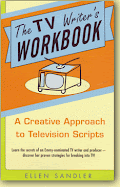



.png)



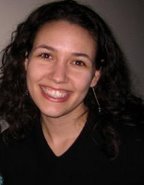
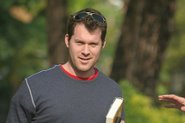

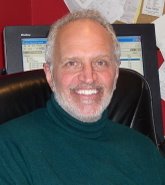
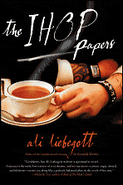
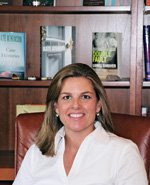
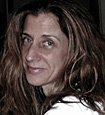
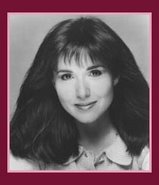






No comments:
Post a Comment